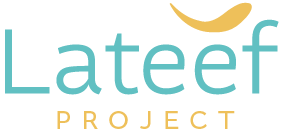What is Islamic Counselling?
Counselling offers a space for individuals to be able to talk and make sense of their experiences, emotions, thoughts and living realities, to help get to know themselves better, and to make better choices in their lives. All counselling approaches will aim to do this, regardless of different theoretical models.
Islamic Counselling is based on the Islamic science of the Self, which sees the human Self on a journey of growth, meaning that the Self passes through progressive stages as each human being evolves toward their highest potential and excellence. Islamic Counselling offers a psychological and spiritual perspective for your reflections while on this journey, by supporting reconnection and deeper integration with your realities, as well as with the realities beyond the Self. The aim of Islamic counselling is for you to discover your unique choices or paths to take, and to reflect on who you choose to be, in the respectful and safe presence and company of the counsellor.
Islamic counselling utilises rich Islamic resources on the understanding of the Self and of humanity, but it was developed to be applied as a therapeutic approach for anyone, whether you belong to the Islamic faith or not, or even if you do not adhere to any faith at all. This is because our emphasis is on a combination of psychological and spiritual development. Islamic Counselling meets its clients at a level of their core beliefs to look at the essence of what makes us all human (if that is what the client wants) and so it is of significant benefit in working with crisis and mental distress.

So, what does Islamic Counselling offer?
A space to deeply listen to your realities: religious-spiritual, non-religious-spiritual oriented, spiritual-existential or purely existential.
A space in which recognition of your adherence to a specific faith and way of life can be a present enabling factor in your development. As Islamic Counsellors, we are trained to be able to work with any Muslims regardless of their sectarian adherence, considering the diversity and differences that exist among Muslims.
A space in which we recognise cultural diversity, in addition to sectarian diversity. Due to its cultural context, Islamic counselling as a model recognises the implicit and explicit realities of being ‘other’ and the related prejudices our clients can experience. As Islamic Counsellors, we are trained to work within the context of your cultural experiences and perspectives. This is very important for the Muslims when defining their unique Self in relation to each other, and in their definition of their Self in relation to their wider experiences in a community.
A Muslim from Pakistan may approach religion and culture very differently to someone from Morocco, whilst sharing the same core beliefs. Either may or may not experience sexism or racism, or other discrimination. An Islamic Counsellor can work with issues that are very specific to the lived realities of the diverse Muslim community.
How is Islamic Counselling evaluated?
In comparative long-term research trials there is evidence to demonstrate that the Islamic counselling therapeutic faith-based model efficiently and effectively addresses mental health problems and prevents long term health conditions.
The Lateef Project and Islamic counselling as a therapeutic model were independently evaluated over the first year of our work in Birmingham. The first evaluation was one-year post assessment of the impact of the intervention on frequent returners and their secondary care use. The second evaluation followed the same format and was carried out by NHS Central Midlands Commissioning Support Unit as a three-year post study.
In the initial one-year study there was an 82% reduction in patient use of secondary care in the areas of elective surgery, non-elective surgery, outpatients and accident and emergency. The reduction in patient use of accident and emergency services was 55%. The total change in patient activity across three years was a reduction in patient activity of 43%. The financial implication of this reduction in patient use of secondary care over the three years was a reduction in cost of 56%, showing a considerable positive economic impact of the Islamic Counselling provided by the Lateef Project. If you would like a copy of this evaluation, please email a request to info@lateefproject.org.

Is Islamic Counselling only for Muslims?
The Lateef Project also works with non-Muslims and people of no faith by supporting their mental well-being. Feedback from clients, particularly those that follow a particular faith, indicates they value the therapeutic space where they can speak freely about themselves, their lives, their faith and their spirituality – something they have not found in other modalities that do not connect with their spiritual identity.
The Lateef Project has succeeded in improving the mental wellbeing of people by working in a way that acknowledges, respects and brings in their faith, enabling them to draw strength from a deeper spiritual context.
